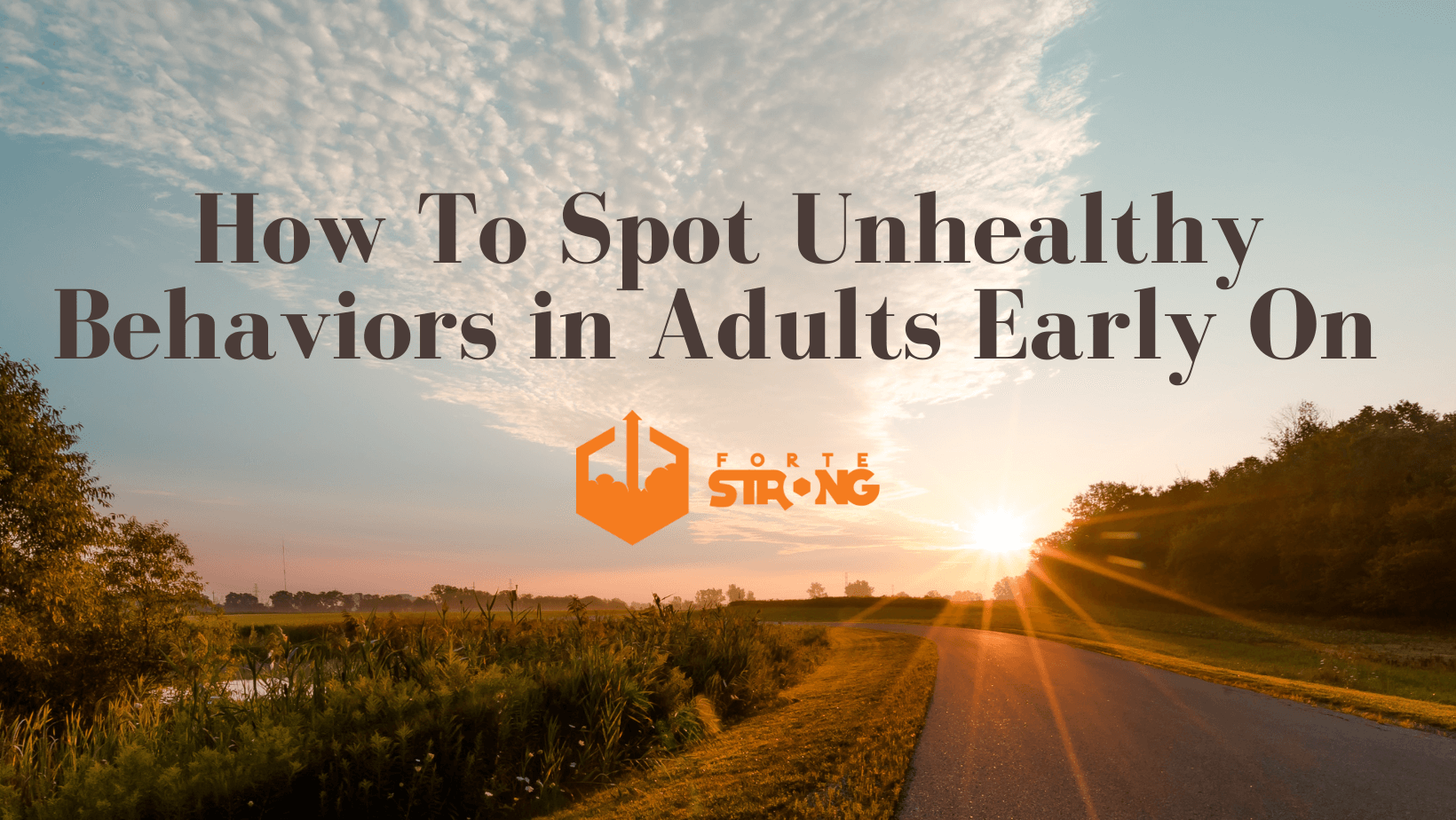Teenagers who are entering their young adult stage will experience a lot of changes in their lives from puberty to navigating the social world around them to their parents and teachers expecting them to move out on their own and go to a good college. It’s no wonder some individuals will struggle with this transition by showing signs of unhealthy behaviors in young adults.
Unhealthy behaviors to watch for
If you are a parent or guardian of a young adult, there are specific unhealthy behaviors in young adults you should watch out for.
Poor diet
The food you put in your body has a direct link to how your body functions throughout the day, what mood you are in, your energy levels, etc. If your teen or young adult is not getting the necessary nutrients, it can lead to further unhealthy behaviors in young adults.
Inadequate sleep
People must get the necessary sleep for their age range. A lack of sleep can lead to the inability to focus and a foul mood.
Low grades in school
Teens may struggle with grades in school due to a lack of understanding of the subject, lack of motivation to do the work or lack of concentration in class. Whatever it may be, there can be an underlying reason for the low grades that parents should sit down and resolve with their child.
Not willing to work
Teens obtaining a job during high school and into early adulthood is important because it builds responsibility and gives them a source of income for their adult expenses, college, and savings. This doesn’t mean that any teenager that doesn’t want to obtain a job is exhibiting unhealthy behaviors, but parents should look at the reasoning why they don’t want a job. Are they participating in extracurricular activities that will benefit their future or are they just unmotivated and don’t want to do work? An alternative option for parents to help their young adults make money is to pay them to do chores around the house and yard. If they aren’t even willing to do that, it may be a sign of unhealthy behavior.
Screen addiction
If you can’t seem to get your teen off of their video games, phones or from watching T.V., and it’s affecting their schoolwork, mood and levels of motivation, it is time to have a serious talk about their habits.
Three unhealthy habits
There are three vital aspects of a teen’s functionality that parents should ensure don’t get out of hand. If a teen or young adult struggles with these three bad habits, it can lead to unhealthy behaviors in young adults.
Skipping meals
Young adults can have various reasons for missing a meal whether it be waking up too late for breakfast before school or getting too busy with homework, socializing, or working.
When a teen or adult doesn’t eat every three to four hours, it impacts their blood sugar and mood. Without fuel food), their focus decreases, their energy diminishes, and emotions become harder to regulate. This is not an optimal choice for someone who is learning at school or a job throughout the day.
Caffeine intake
Caffeine exacerbates anxiety and dehydrates the body, so if a teen or young adult is drinking excessive amounts of caffeine, it can drastically affect the function of their body and brain. The 45-minute boost of energy they may get from the caffeine does more harm than good because when their body comes down from the elevation, they will feel an increased need for the caffeine. If someone is already struggling with depression and anxiety, caffeine can make it more difficult to manage.
That’s not to say they can never have caffeine, but it’s important that parents keep tabs on what their teen is drinking and promote drinking water.
Not enough sleep
Teens and young adults should be getting 9-10 hours of sleep but may not be getting enough sleep due to staying up late with friends, doing homework, surfing the internet, or watching T.V. A lack of sleep can be a contributing factor to higher rates of mental health disorders and unhealthy behaviors in young adults, along with having a harder time paying attention and raising impulsivity.
If you have a teen or young adult who is showing signs of these unhealthy behaviors (especially in males), it is vital to seek help early on to avoid further difficulties for your child’s independence later in their adult years.
Forte Strong in Southern Utah
Forte Strong is a program that can help. The coaches teach the men both hard and soft skills necessary to live their lives independently. The men learn how to cook, clean, and do basic maintenance. They will also learn how to care for themselves by planning and cooking healthy meals, following a hygiene routine, and learning about the importance of physical fitness. The men will learn how to budget their money, find and keep jobs, and set goals.
The men learn social skills (such as how to resolve conflict and effectively communicate) and emotional skills (such as how to manage their anger and stress and regulate their emotions).
The therapists and coaches work closely with the men to discover what skills will be most helpful for them to develop.

